RUSSIA, BRICS, AND THE DISRUPTION OF GLOBAL ORDER
RUSSIA, BRICS, AND THE DISRUPTION OF GLOBAL ORDER
Rachel S. Salzman
2019 Georgetown University Press. All rights reserved. No part of this book may be reproduced or utilized in any form or by any means, electronic or mechanical, including photocopying and recording, or by any information storage and retrieval system, without permission in writing from the publisher.
The publisher is not responsible for third-party websites or their content. URL links were active at time of publication.
Library of Congress Cataloging-in-Publication Data
Names: Salzman, Rachel S., author.
Title: Russia, BRICS, and the disruption of global order / Rachel S. Salzman.
Description: Washington, DC : Georgetown University Press, 2019. | Includes bibliographical references and index.
Identifiers: LCCN 2018023022 (print) | LCCN 2018034075 (ebook) | ISBN 9781626166615 (pbk. : alk. paper) | ISBN 9781626166608 (hardcover : alk. paper) | ISBN 9781626166622 (ebook)
Subjects: LCSH: Russia (Federation)Foreign relationsBRIC countries. | BRIC countriesForeign relationsRussia (Federation)
Classification: LCC JZ1616.A57 (ebook) | LCC JZ1616.A57 B757 2019 (print) | DDC 327.47dc23
LC record available at https://lccn.loc.gov/2018023022

This book is printed on acid-free paper meeting the requirements of the American National Standard for Permanence in Paper for Printed Library Materials.
20 19 9 8 7 6 5 4 3 2 First printing
Printed in the United States of America.
Cover design by Martyn Schmoll.
Cover image by Frederic LegrandCOMEO/Shutterstock.com.
For my parents
Contents
Figures
Acknowledgments
THIS BOOK BEGAN AS A DISSERTATION, AND SO I FIRST OWE A DEBT OF gratitude to my committee. My dissertation adviser, Bruce Parrott, provided thoughtful, incisive, and helpful comments, and his patience throughout was indispensable. Charles Gati always pushed me to consider the opposing argument. Andrew Kuchins was the first to propose that I look into BRICS. Martin Gilman provided an economists eye and kept me focused on the topic at hand. Angela Stent was instrumental in helping me draw out the macro themes of the research. Without the unique contribution of each committee member, this process would have been much the poorer.
Further thanks go to Angela and Andy, who selected me for a postdoctoral fellowship at the Center for Eurasian, Russian, and East European Studies at Georgetown University. They provided support and guidance throughout the process of transforming the dissertation into a book. The fellowship, sponsored by the Carnegie Corporation of New York as part of the Russia Futures Project, also afforded me the opportunity to do additional fieldwork in Russia, China, and India to enrich and expand my argument.
It is not only faculty advisers and senior scholars who helped bring this project to fruition. Madina Bizhanova provided invaluable support as a research assistant in the final stages, and Hillel Smith offered design inspiration. Thanks are also due to Don Jacobs at Georgetown University Press for his help in shepherding the early manuscript through peer review and the publishing committee, and to Kathryn Owens for making it publication-ready. Finally, there would have been no manuscript to review without the support of the inimitable librarians at the SAIS library, who offered support from the inception of the project through to its very final stages.
In addition to the support from Carnegie Corporation of New York, I am thankful to the Cosmos Scholars Foundation and the National Security Education Program Boren Fellowship for their support of my dissertation fieldwork. On the substantive and personal side, I am especially grateful to Robert H. Legvold and Amb. James F. Collins for their guidance and support. I would not be where I am today had it not been for them.
Finally, I owe more to my parents than words can express. Faced with a child deeply interested in Russia since the age of thirteen, my parents have patiently supported my steps and missteps as I found my way. My father has read every word I have written, whether on education under Tsar Nicholas I or contemporary Russian foreign policy. He and my mother have provided untold assistance and guidance. I will be forever grateful.
A Note on Transliteration and Sources
I USE THE LIBRARY OF CONGRESS SYSTEM OF TRANSLITERATION WITHOUT diacritics, except in instances of proper names with English equivalents, such as Alexander, or where there is an accepted English spelling of a name, such as Yeltsin. is rendered as y. Both and are written as i. is ia.
The Kremlin and the Russian Ministry of Foreign Affairs often provide English translations of speeches and documents. When these were available, I cite the English version since it is the translation of record. In places where the English translation may have missed some of the nuance in the Russian original or needs clarification, I provide the transliterated Russian in brackets and cite both versions.
Abbreviations
AIIB | Asian Infrastructure and Investment Bank |
BRI | Belt and Road Initiative |
BRIC | Brazil Russia India China |
BRICS | Brazil Russia India China South Africa |
BTTC | BRICS Think Tanks Council |
CIS | Commonwealth of Independent States |
CRA | Contingency Reserve Arrangement |
CSCE | Conference for Security and Cooperation in Europe |
CSTO | Collective Security Treaty Organization |
DCFTA | Deep and Comprehensive Free Trade Area |
EEU | Eurasian Union |
EST | European Security Treaty |
GDP | gross domestic product |
G7 | Group of Seven |
G8 | Group of Eight |
G20 | Group of Twenty |
IBSA | India-BrazilSouth Africa Dialogue Forum |
IMF | International Monetary Fund |
MER | market exchange rate |
MGIMO | Moscow State Institute of International Affairs |
MID | Ministerstvo innostranykh del (Russian Ministry of Foreign Affairs) |
NATO | North Atlantic Treaty Organization |
NDB | New Development Bank |
NKI BRIKS | National Committee on BRICS Research (Russia) |
O5 | Outreach 5 |
OSCE | Organization for Security and Cooperation in Europe |
PPP | purchasing power parity |
|

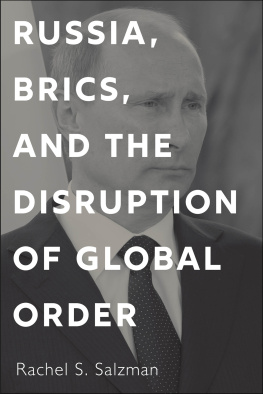

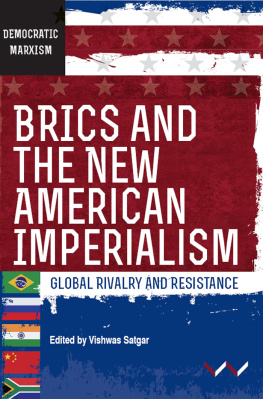
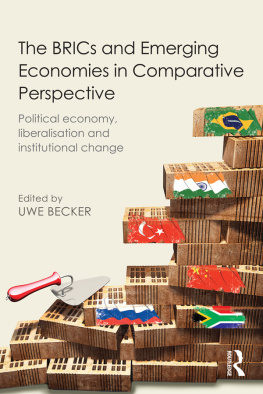
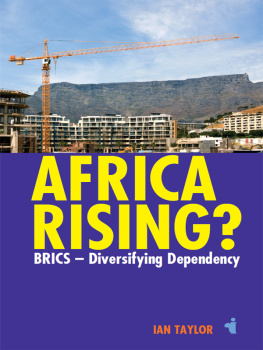
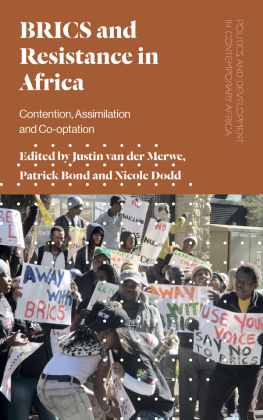
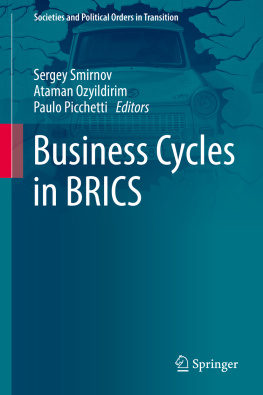
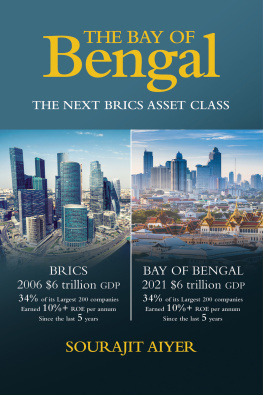
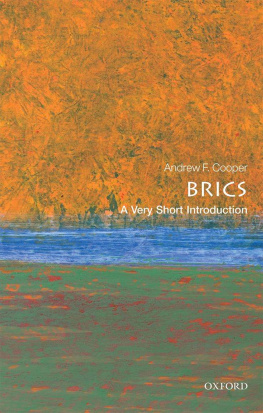
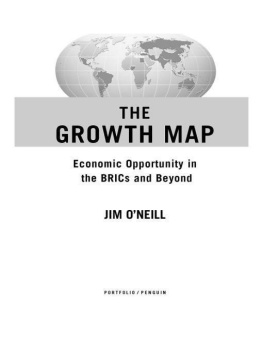

 This book is printed on acid-free paper meeting the requirements of the American National Standard for Permanence in Paper for Printed Library Materials.
This book is printed on acid-free paper meeting the requirements of the American National Standard for Permanence in Paper for Printed Library Materials.